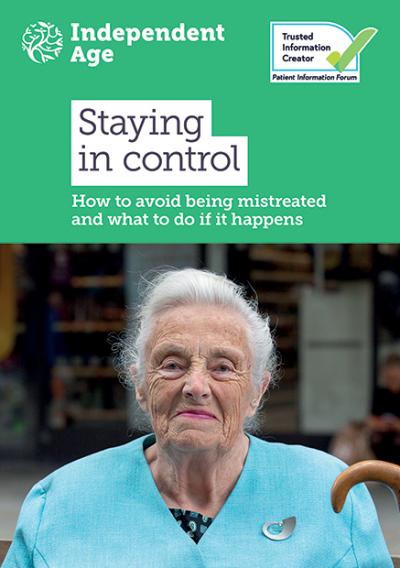Related publications

Future planning: Managing my affairs

Planning for the end of life


A power of attorney is a legal document that gives someone you trust the authority to help you make decisions, or to make them and take actions for you if you become unable to do these things yourself. There are different types for different circumstances.
A power of attorney gives legal power to one or more people – your ‘attorneys’ – to help you make decisions or make decisions on your behalf. You might need them to do this:
The type of power of attorney you need depends on what type of decisions you would like it to cover, and whether you would like the attorney to act while you still have mental capacity.
Mental capacity is the ability to understand, remember and use information, so that you can make and communicate decisions when they need to be made. You may want the peace of mind of knowing that someone you have chosen will be involved in making decisions for you if you lose this ability.
There could be many reasons for not having mental capacity, including:
It’s possible to have mental capacity at some times, but not at others. For example, if you’re unconscious, this may only be a temporary loss of mental capacity. Our factsheet Future planning: Mental capacity explains what mental capacity is, the way it is assessed and what rules are there to protect you if you're unable to make or communicate decisions for yourself.
Your attorney can be given complete authority over your financial and personal affairs, so you should choose someone you trust to make decisions in your best interests. It could be:
You can choose more than one attorney. You will have to specify whether they can make decisions on their own, if they must all agree before a decision is made, or if they can make some decisions together and others separately.
The rules about powers of attorney are different depending on where you live. England and Wales have the same rules, but Scotland has a very different system. There is also a different way to set up a power of attorney in Scotland.
Different types of power of attorney can be used in different situations. You may sometimes want to set up more than one type.
A lasting power of attorney (LPA) gives someone else the authority to help you make decisions, or to make them on your behalf if you lose mental capacity. You can only set one up while you have mental capacity.
There are two types of LPA:
You can have the same attorney for both types but you have to apply on different forms for each type. You can also appoint different people as attorneys.
Property and financial affairs LPA
This allows your attorney to make financial decisions and take financial actions for you, such as:
You can choose which decisions your attorney can make. The LPA for property and financial affairs can be used while you still have mental capacity if you wish. Your attorney must keep their own money separate and keep accounts of how they use your money.
Health and welfare LPA
This LPA can only be used once you have lost mental capacity. It covers decisions relating to your care, such as:
When setting up an LPA for health and welfare, you will need to decide if you also want to allow your attorney to make decisions about life-saving treatments, such as cardiopulmonary resuscitation (CPR).
You need to complete an official form from the Office of the Public Guardian (OPG). It must then be registered with the OPG to be valid. The time it takes to process your LPA can vary a lot. Check for the latest service information and updates.
The LPA must be signed by you, your attorney and a witness. You'll also need an independent third party (a certificate provider) to confirm that you:
A certificate provider could be someone you know well or a professional, such as a doctor, solicitor or social worker.
You'll need to complete separate forms if you want to set up a financial decisions LPA and a health and welfare LPA. It costs £82 to register each LPA (so £164 for both), but you may pay less or nothing at all if you’re on a low income or receiving certain benefits. Visit Gov.uk for more information about applying to pay less to register an LPA or EPA. You’ll need to fill out a form and provide evidence of your income or any benefits you receive.
You can cancel an LPA while you still have mental capacity. You’ll need to issue a deed of revocation to do this. Gov.uk has information on how to end an LPA.
If you have any concerns about how an attorney is acting on behalf of someone else, report it to the OPG.
If you have any queries, the OPG has a Frequently Asked Questions blog that may help. They also have a guide to help you fill out and register your LPA application.
You can set up a general power of attorney if you need someone to act for you for a temporary period. It’s only valid while you have mental capacity.
A general power of attorney can be useful if you:
You can let your attorney deal with all your finances and property, or you can restrict them to specific powers. This is sometimes called a limited power of attorney. For example, you could only allow them to:
There is a standard form of wording you need to use for a general power of attorney. To set one up, get advice from a solicitor or ask a legal adviser at Citizens Advice to help you. You can contact The Law Society to find a solicitor.
To end a general power of attorney, you need to issue a written statement called a deed of revocation – ask a legal adviser for help with this.
If you lose mental capacity in the future and you haven’t set up a lasting or enduring power of attorney, the Court of Protection can appoint a deputy to make decisions on your behalf.
Someone who wants to make decisions for you can apply to the Court of Protection to become a deputy or guardian for either or both:
You will usually have to pay fees to become a deputy, although help is sometimes available to pay these.
The role of deputy is similar to that of an attorney. A deputy will be supervised by, and required to submit reports to, the OPG. Gov.uk has more information.
• Continuing Power of Attorney, which gives powers to deal with your money and property.
• Welfare Power of Attorney, which gives powers to make decisions around your health or personal welfare.
• Combined Power of Attorney, which gives the same powers as continuing and welfare Power of Attorney, so your appointee can make decisions about your money and property, and health and welfare.
A Continuing Power of Attorney can be used to help you with financial matters before you lose capacity, but decisions about your welfare cannot be made until you are no longer able to make them yourself.
To set up a power of attorney in Scotland, you have to get a power of attorney agreement drafted and send it to the Office of the Public Guardian (Scotland) for them to register it.
The Office of the Public Guardian (Scotland) won’t write a PoA agreement for you and doesn’t have a set form for it. You will have to have it drafted yourself. Most legal advisors, and other advisers like your local Citizens Advice, will be able to help you write your POA so that it can be registered without needing to be changed. To find a solicitor who can help you, visit Law Society of Scotland.
When you are happy with it, you can send your PoA agreement to the Office of the Public Guardian (Scotland). You can send it:
• online
• by post, by sending your signed PoA agreement, certificate of capacity and registration form to The Office of the Public Guardian, Hadrian House, Callendar Business Park, Callendar Road, Falkirk, FK1 1XR.
If someone has lost mental capacity and hasn’t set up any kind of power of attorney, the local sheriff court can appoint a ‘guardian’ to make decisions for them. They can also grant an intervention order for someone to make a one-off decision to make a specific thing happen.
Guardianship orders
Guardianship orders allow someone to make decisions for a person who has lost capacity on an ongoing basis. They are often granted for three years but can be granted for a longer time period if needed. The type of decisions they can make are called ‘powers’ and can be:
Intervention orders
Like with a guardianship order, an intervention order is granted by the local sheriff court, to allow someone to act for someone who has lost capacity. The difference is that intervention orders only allow that person to make a one-off decision or action. This can be something like signing legal documents or selling someone’s house.
Read our factsheets for more information on your options:
For information about applying for a power of attorney in England or Wales, contact the Office of the Public Guardian (OPG). The OPG also produces a leaflet, Who needs a lasting power of attorney, which explains the benefits of setting one up.
In Scotland, visit the Office of the Public Guardian (Scotland).



